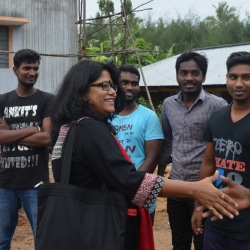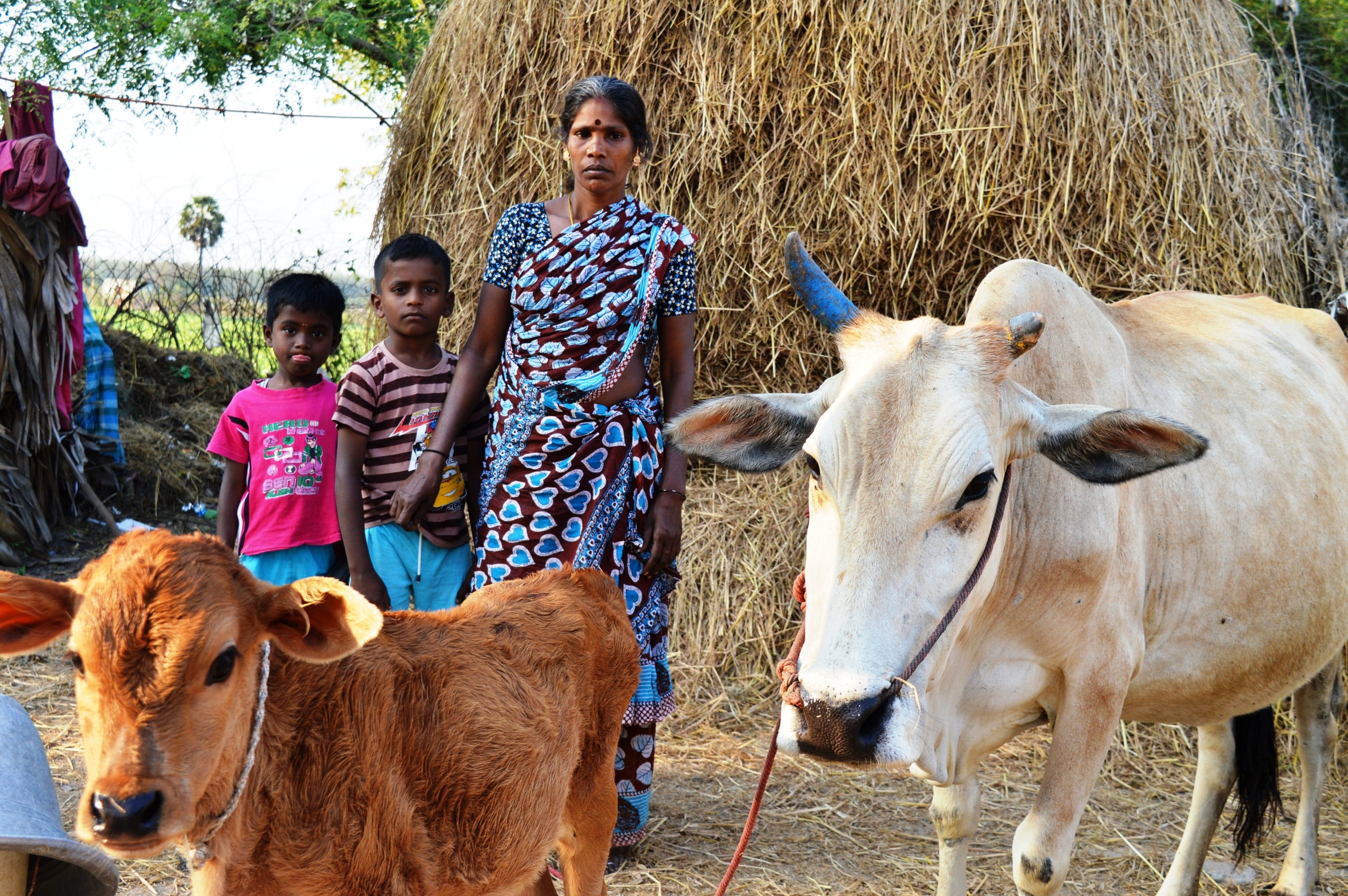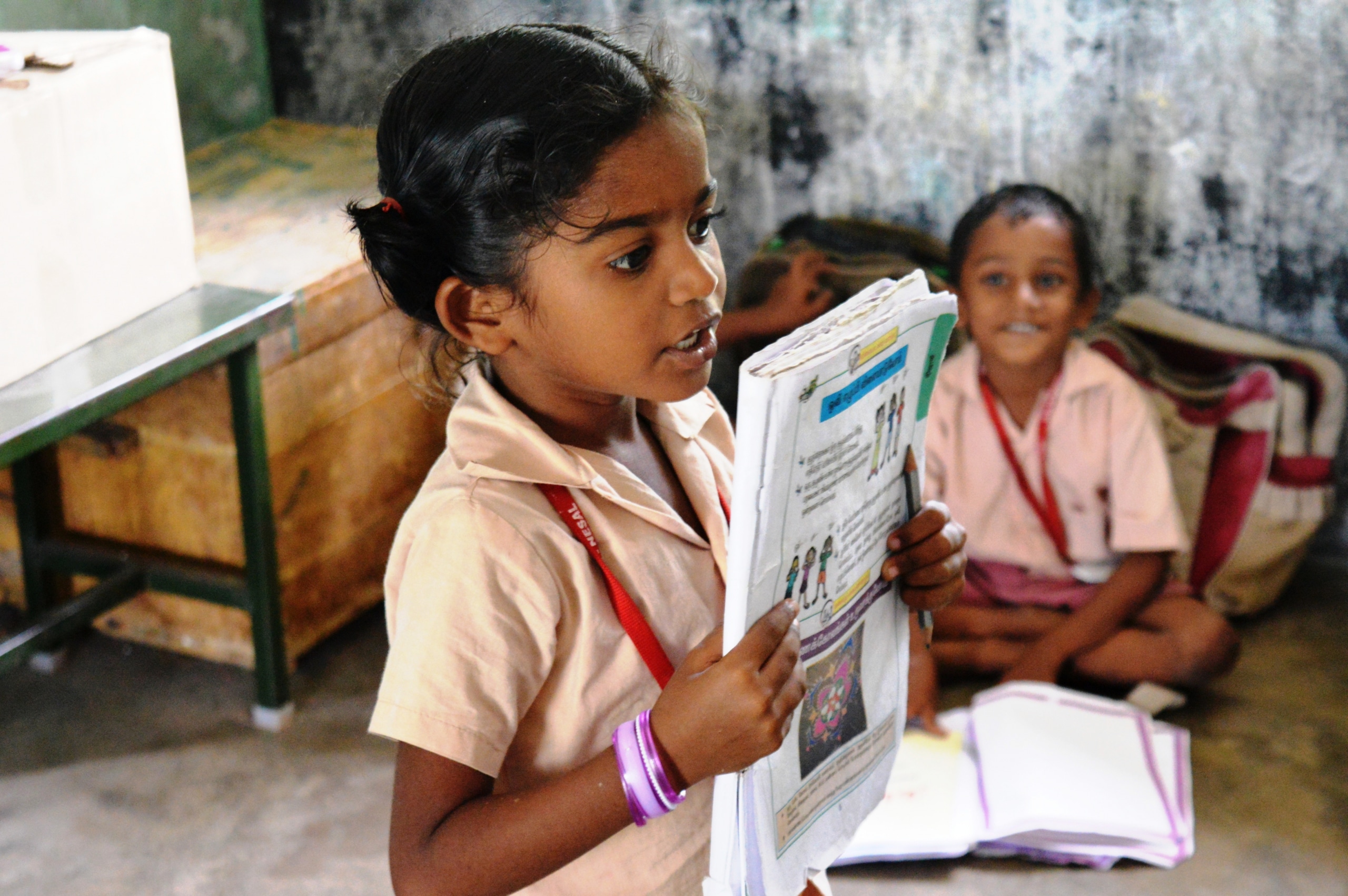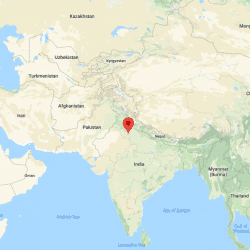
"In India, women and children are particularly vulnerable to abuse and exploitation"
Mamta Borgoyary
Mamta Borgoyary, CEO of FXB India Suraksha, explains what the organization does to protect the most vulnerable populations from abuse, exploitation and violence in all its forms.
India was one of the first countries where FXB started working, as early as 1991. After originally focusing on helping families affected by HIV/AIDS, FXB India’s team expanded its scope, from community-based, poverty alleviation FXBVillages to activities related to improving access to healthcare, sanitation and hygiene.
But at the core of FXB’s action stands the protection of vulnerable people, especially women and children. The organization was founded with the mission to implement and promote child rights, as defined by the Convention of Children’s Rights adopted by the United Nations General Assembly on November 20, 1989, affecting children orphaned by and infected with HIV/AIDS. Over time, FXB expanded its work to include families and children affected by multiple causes of vulnerability, including conflict, poverty and exclusion.
FXB’s actions in India deeply reflect this objective: “The goal is to reduce and prevent all kinds of exploitation targeting people with added vulnerability, including in terms of human trafficking, sexual exploitation, gender-based violence against women or child labour”, explains Mamta Borgoyary, the director of FXB India Suraksha, which has been registered as a local non-profit organization since 2007 and employs more than 115 staff across 10 states with its headquarters in New Delhi.

Working at the source of human trafficking and exploitation
As the seasoned humanitarian aid worker explains, FXB India is active at every step of the process. “In terms of prevention, we work mainly in the source districts of India, veritable hotspots of human trafficking”, she says, particularly in the country’s north-east and eastern tribal areas, like the district of Ranchi, where FXB’s operations were recognized as one of the best intervention models by UN Women at the United Nations Permanent Forum on the Rights of Indigenous Peoples a few years ago.
“All our actions are always carried out in cooperation with local communities, government institutions, media organizations, but other actors as well that could prove instrumental in identifying victims of human trafficking, like religious leaders or taxi unions”.
Lack of knowledge and awareness about the inner-workings of the human trafficking trade is also to blame for its ability to flourish, and makes training and capacity-building all the more important. “FXB India Suraksha’s staff organizes and conducts training sessions with a wide variety of actors, including judges, journalists, welfare community organizations, but most importantly, law enforcement authorities. We’ve already trained, for instance, around 12,000 police personnel throughout India in matters related to child protection and safety”, Mamta notes.
A one-hour window to help children in distress
But with a child estimated to go missing every 10 minutes throughout the country, and one in three women subject to domestic abuse, preventive action is not enough, and the organization provides direct assistance for people in need. “One of our flagship programs in that field is the non-stop hotline ‘Childline 1098’, which FXB manages in the districts of Manipur and Uttar Pradesh in line with the government’s national policy”, Mamta points out. “Everytime we receive a call from a child in distress, the goal is to respond and rescue him or her within one hour. Then comes the reintegration and rehabilitation process, either by reuniting the child with his family if it’s in his interest, or using alternative means, like shelters, in other cases”.

“But the child hotline is evidently not the only way we identify victims of abuse or exploitation. Thanks to our outreach and prevention network, we also get tip-offs, which enabled us last year, for instance, to rescue nearly 200 Nepalese women being trafficked through India, during a raid carried out in coordination with Indian law enforcement agencies”.
The extent of the human trafficking and child exploitation trade in India has pushed FXB India Suraksha, now present in 10 states and territories in India, to launch over the years more and more activities in this area. From the MUKTI progam (“Freedom”, in Hindi), designed to combat child sexual abuse and human trafficking in five states (Assam, Manipul, West Bengal, Delhi and Goa), to its FXB Jaipur daycare center to intercept and care for young children who, after running away from their homes or being abandoned by their families, face a dangerous life on the streets, Mamta and her team implement, on a daily basis, the philosophy of FXB founder Albina du Boisrouvray: a commitment to forgotten people, in forgotten places and their forgotten issues.
